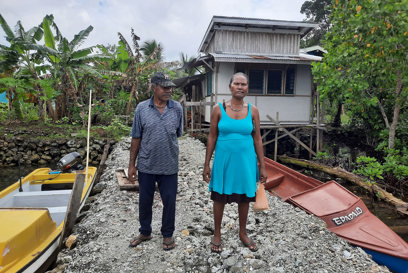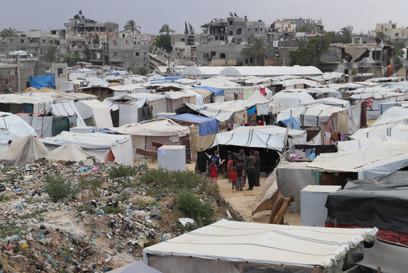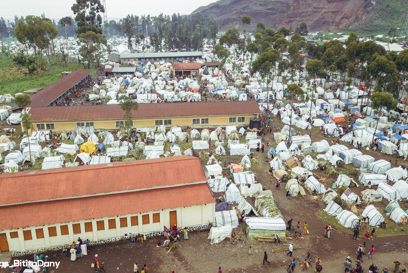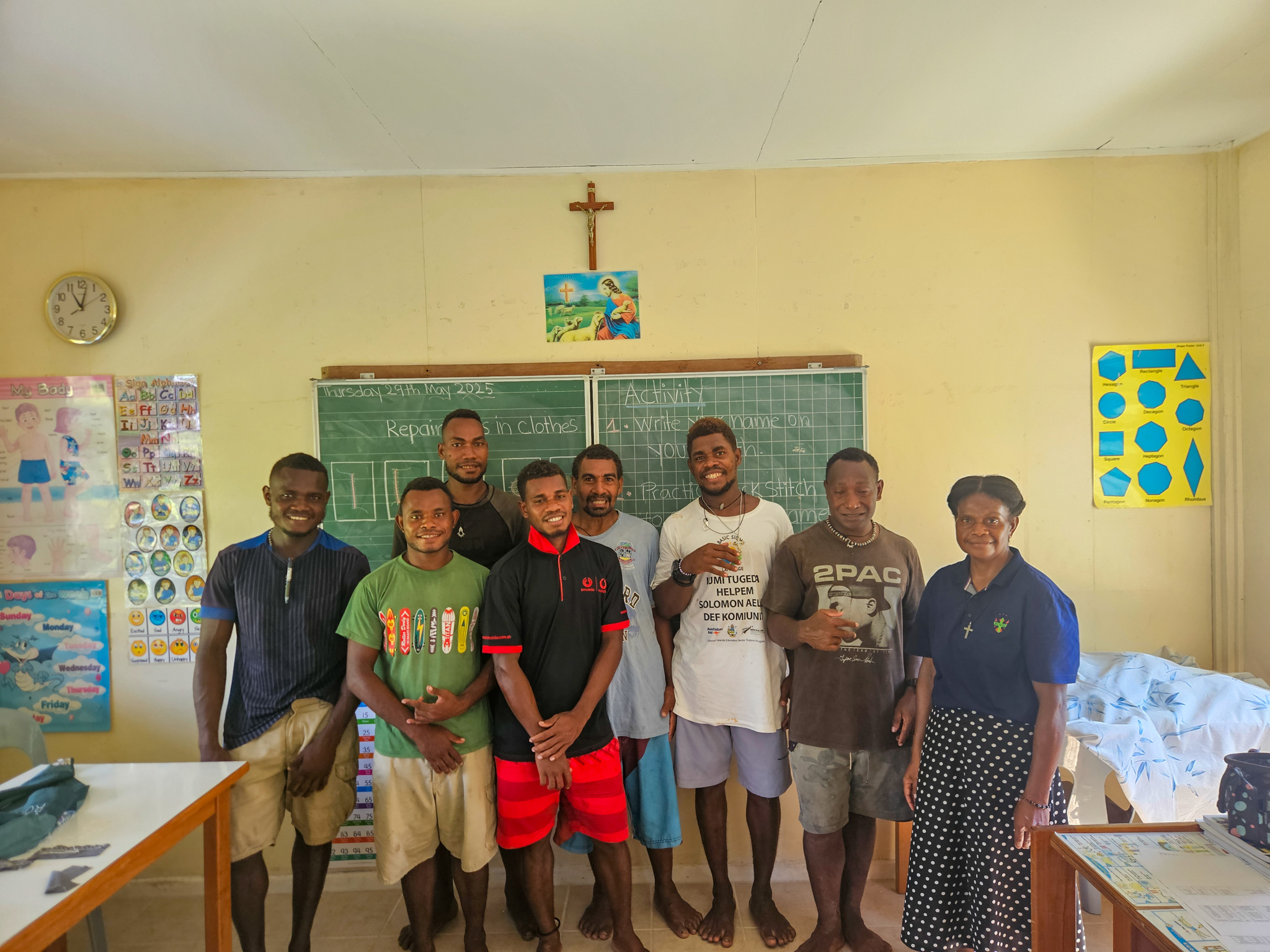Record setting should be something worthy of fanfare, a signal of achievement, but in recent years records have been broken in ways humanity should deeply regret. The 19th of August was World Humanitarian Day. To mark it Caritas Australia gathered alongside government ministers, interfaith representatives and colleagues from the aid and development sector, to bear witness to record numbers of humanitarian deaths and stand in solidarity with our partners.
How unsafe is aid work?
In 2024, a record 383 humanitarian workers were killed, most of them national colleagues working in their own communities. This year looks like it could be even worse. Already in 2025, 265 aid workers have lost their lives, and the year is far from over. These are not just statistics. They are people – friends, colleagues, parents - who chose compassion over comfort, and service over safety.
At Caritas Australia, we work through a network of more than 200 local church partners. As an example, in the Pacific we work with twelve other church-based organisations. This Church Agencies Network is supported by the Australian Government as a tapestry of first responders in the face of disasters, and as a network with which to defend against future crises.
This means our partners are the people on the front lines. They are not flown in - they are born there. They know the terrain, the culture, the people and the language. I am deeply saddened to say, they therefore make up those most at risk.
What is it like delivering aid on the frontlines?
Our colleagues - particularly those working across our emergency programs - tell us just how perilous their work is.
In Gaza, they describe “living a horror movie.” They say they wait their turn to be bombed alongside the people they serve. Sometimes the peril aid workers face is drawn out over weeks, months, or years. For those in Gaza it means having been displaced multiple times, living in makeshift tents, surviving on little more than tea. Now, two years into the war, they are pale, weak, and grieving. Yet they continue to work. They tell us their work is the only thing that motivates them.
For Caritas, this death toll is personal. In Gaza we lost Viola, a 26-year-old pharmacist, in a missile strike that also killed her husband and infant daughter. We lost Issam, another pharmacist, in a bombing that also took his two sons. Their lives and futures are not the acceptable collateral of war.
In Ukraine, our partners say the “death zone” along the front line, where aid workers are targeted by Russian forces, now stretches up to 25 kilometres. Every mission is a gamble with death. Yet local organisations persist, filling critical gaps left by governments and larger agencies. Their courage is extraordinary, but the burden they carry is unfair and unsustainable.
In the Democratic Republic of Congo, two Caritas Goma staff were kidnapped from a convent just weeks ago. It is not uncommon for armed groups in the region to ambush convoys, loot supplies, and threaten hospitals, meaning safe routes can become deadly within hours.
What can Australia do to support aid workers?
Australia has a role to play in defending aid workers and their work. Our government is part of a Ministerial Group working to secure international support for the Declaration on the Protection of Humanitarian Personnel. This declaration, first introduced at the UN General Assembly in 2024, calls for stronger compliance with international humanitarian law and accountability for those who violate it.
But declarations alone are not enough. Australia must also maintain a robust aid budget that supports life-saving work. Diplomatic action must be matched by financial commitment. We urge it because protecting aid workers and supporting their work is not just a moral imperative - it reflects who we are as a nation. Humanitarians after all are our good Samaritans. They cross dangerous borders, enter war zones, and face unimaginable risks - not for profit, but for people. Their work is the embodiment of hope. And hope, as we know, is fragile but immensely powerful.
As World Humanitarian Day passes, again let us honour their sacrifice not with silence, but with action. Let us raise their voices, protect their lives, and ensure that their courage is never forgotten.
Because the world cannot afford to lose its humanitarians. And they cannot afford for us to look away.
Kirsten Sayers, CEO of Caritas Australia

















